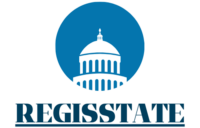In the complex web of governance, understanding the key terms that define the activities of a state or territory is crucial. At the heart of these activities lies a term that encapsulates the essence of leadership, decision-making, and administration. This term isn’t just a buzzword; it forms the backbone of how societies organize themselves and ensure order and progress.
Governance activities span a wide range, from crafting policies and enforcing laws to managing resources and representing citizens’ interests. These tasks require a coordinated effort and a clear understanding of the fundamental principles that guide them. The key term that describes these activities is not only foundational to political science but also essential for anyone seeking to grasp how states function effectively.
The Activities Related to The Governance of a State or Territory Describes What Key Term
State or territory governance involves various facets critical to the functioning and management of regions. These elements ensure efficiency and transparency in administration.
Political Structures
 Political structures form the backbone of governance by organizing power distribution. Institutions such as the executive, legislative, and judiciary branches allocate authority. The executive implements laws and policies; the legislature creates and amends laws; the judiciary interprets laws and ensures justice.
Political structures form the backbone of governance by organizing power distribution. Institutions such as the executive, legislative, and judiciary branches allocate authority. The executive implements laws and policies; the legislature creates and amends laws; the judiciary interprets laws and ensures justice.
Legislative Responsibilities
Legislative responsibilities ensure check and balance in governance. Lawmakers debate, draft, and enact legislation to address social issues and regulate economic activities. They also oversee government performance, ensuring accountability and adherence to democratic principles.
Administrative Functions
Administrative functions involve executing policies and managing public services. Bureaucratic entities handle day-to-day operations, resource distribution, and service delivery to citizens. Effective administration relies on clear directives and accountability to maintain public trust and ensure efficient resource use.
The Role of Government Officials
Government officials play crucial roles in governance, overseeing different functions necessary for the smooth operation of a state or territory. Their activities ensure that government actions align with laws, policies, and citizen needs.
Executive Roles
 Executive officials are responsible for implementing laws and managing government operations. Presidents, governors, and mayors lead the executive branch, enacting policies and directing administrative departments. They oversee national and regional defense, enforce laws, manage international relations, and execute budgets. These officials act as the face of government policy initiatives and hold veto power over legislative proposals in many systems.
Executive officials are responsible for implementing laws and managing government operations. Presidents, governors, and mayors lead the executive branch, enacting policies and directing administrative departments. They oversee national and regional defense, enforce laws, manage international relations, and execute budgets. These officials act as the face of government policy initiatives and hold veto power over legislative proposals in many systems.
Legislative Leaders
Legislative leaders guide the process of creating and enacting laws. Senators, representatives, and members of parliament draft, debate, and vote on legislation that shapes the legal framework. They play a vital role in checks and balances, holding the executive accountable and representing citizens’ interests. Through committees, hearings, and debates, they scrutinize government activities and propose amendments to address constituents’ needs.
Challenges in Governance
Governance faces multiple challenges that can hinder effective state or territory management. Addressing political instability and economic management issues is crucial for maintaining robust governance structures.
Political Instability
Political instability disrupts governance by creating uncertainty and reducing public trust. Frequent changes in leadership, power struggles, and weak political institutions can lead to ineffective decision-making and policy implementation. For instance, a country experiencing constant leadership turnovers may struggle to maintain consistent policies, impacting stability and progress. Without stable leadership, governments find it challenging to establish long-term policies that promote growth and development.
Economic Management
 Economic management plays a crucial role in governance, influencing how resources are allocated and public services are delivered. Poor economic management can result in budget deficits, inflation, and unemployment, undermining public confidence and hindering growth. Governments struggling with inefficient fiscal policies may face challenges in funding critical services, such as healthcare and education. It becomes imperative for policymakers to adopt sound economic strategies that ensure sustainable growth and equitable resource distribution.
Economic management plays a crucial role in governance, influencing how resources are allocated and public services are delivered. Poor economic management can result in budget deficits, inflation, and unemployment, undermining public confidence and hindering growth. Governments struggling with inefficient fiscal policies may face challenges in funding critical services, such as healthcare and education. It becomes imperative for policymakers to adopt sound economic strategies that ensure sustainable growth and equitable resource distribution.
Effective Management and Administration
Understanding the intricacies of governance is crucial for appreciating how states and territories are managed. It involves a complex interplay of leadership, decision-making, and administration, all essential for maintaining order and promoting development. Governance ensures that institutions function effectively by establishing clear frameworks for law enforcement, resource management, and public service delivery. The roles of government officials and the challenges they face, such as political instability and economic management, highlight the need for robust systems that uphold accountability and transparency. By grasping these key concepts, individuals can better comprehend the dynamics of governance and its impact on societal stability and growth.



